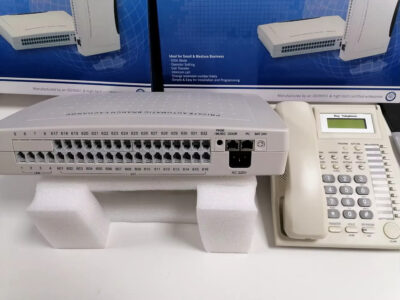Empower Your Business Communication with PABX Systems
Empower Your Business Communication with PABX Systems
Let Our Trusted Experts Take Care of Your Phone Systems, While You Focus on Growing Your Business

What is a PABX Telephone System?
PABX, or Private Automatic Branch Exchange, is a telephone system that allows multiple lines to be connected within an organization while sharing a limited number of external phone lines. It’s the backbone of efficient business communication.
Key Benefits
- Cost-effective communication
- Improved call management
- Enhanced productivity
- Scalability for growing businesses
Our PABX Installation Services
Why Choose Us?
- Expertise: Our team has over 15 years of experience in PABX installations across Nigeria.
- Quality: We use only top-tier PABX hardware from reputable manufacturers.
- Support: Our 24/7 customer support ensures your system runs smoothly.
- Affordability: Competitive pricing you can’t find elsewhere.

Frequently Asked Questions About PBX Phone Systems
How to setup a PABX system?
Setting up a PABX system involves several steps. Here’s how to do it:
Step 1: Determine Your Requirements
- Assess the Number of Extensions and Lines Needed: Determine how many users or extensions the system will serve and the number of external lines needed for simultaneous calls.
- Choose Between Traditional, VoIP, or Hybrid: Decide if you need a traditional (analog), VoIP (internet-based), or hybrid system based on your business requirements, internet quality, and budget.
Step 2: Choose the Right PABX System
- Hardware Selection: Select the PABX hardware or server that suits your needs. Small offices may require a simple setup, while larger organizations might need more robust systems.
- PABX Software: Choose software that meets your needs, often provided by brands like Avaya, Cisco, or Asterisk for open-source options.
- Phones and Accessories: Ensure you have compatible desk phones, headsets, and any additional accessories.
Step 3: Install the Physical Hardware
- Set Up the Central PABX Box: Install the PABX hardware in a dedicated area with easy access to power, network cables, and phone lines.
- Connect Phone Lines: Link the external phone lines (PSTN or VoIP) to the PABX system.
- Cabling and Wiring: Run cables to connect each phone location to the PABX. Structured cabling helps keep the setup organized and reduces issues later.
Step 4: Configure the PABX System
- System Configuration: Program the PABX to route calls to different extensions and set up other key features such as voicemail, call forwarding, and auto-attendants.
- Assign Extensions: Set up and label extensions for each user, department, or location as per your requirements.
- Set Call Rules: Define rules for call routing, prioritization, and restrictions based on business hours or user roles.
Step 5: Network and Internet Setup (for VoIP PABX)
- Internet Bandwidth: Ensure you have sufficient bandwidth for a VoIP-based system to maintain call quality.
- Firewall and Security: Configure your firewall and security settings to protect the system from unauthorized access.
- VoIP Trunk Setup: If using VoIP, configure SIP trunks for outbound and inbound calls over the internet.
Step 6: Testing
- Conduct Test Calls: Test internal calls between extensions and external calls to ensure clarity and connectivity.
- Check for Call Features: Verify that voicemail, call forwarding, and other features work as intended.
- Troubleshoot Issues: Address any sound quality or connectivity issues, adjusting configurations if necessary.
Setting up a PABX system can be complex, especially when integrating advanced features or managing multiple locations. At RapidBTS Limited, we specialize in end-to-end PABX setup—from selecting the right system to configuring, testing, and optimizing it for your business.
Call us today @ 07000700111 to discuss your PABX needs and let our team handle the entire process.
What type of telephone system do you offer?
We offer a range of PABX solutions to meet diverse business needs, including traditional analog PABX systems from trusted brands like Panasonic, VoIP-based systems from industry leaders such as Grandstream and Yeastar, and hybrid telephone systems that combine the best of both worlds.
What is the difference between PBX and PABX?
PBX (Private Branch Exchange) and PABX (Private Automatic Branch Exchange) are both types of business phone systems that manage internal and external calls. The key difference is automation:
- PBX systems originally required a human operator to manually connect calls within the system.
- PABX systems are an automated version of PBX, where calls are connected automatically without the need for a human operator.
Today, most business phone systems are automated, so "PBX" and "PABX" are often used interchangeably. However, "PABX" specifically refers to automated systems, while "PBX" is the broader term for any private business phone system.
How much does PABX cost in Nigeria?
The cost of a PABX system in Nigeria depends on several factors, including the type of system, brand, number of extensions, and installation requirements:
- Hybrid PBX systems range from 1 to 3 million naira.
- PABX hardware costs vary based on the number of extensions and lines: for example, a system with 8 extensions is around 70,000 naira, while one with 24 extensions can reach almost 1 million naira.
- IP PBX systems typically range from 500,000 to 3 million naira. Brands like Grandstream come with the advantage of no licensing fees, though some other brands may require licensing or have additional recurring fees.
Installation fees also vary depending on the project scope, number of phone systems, and location.

